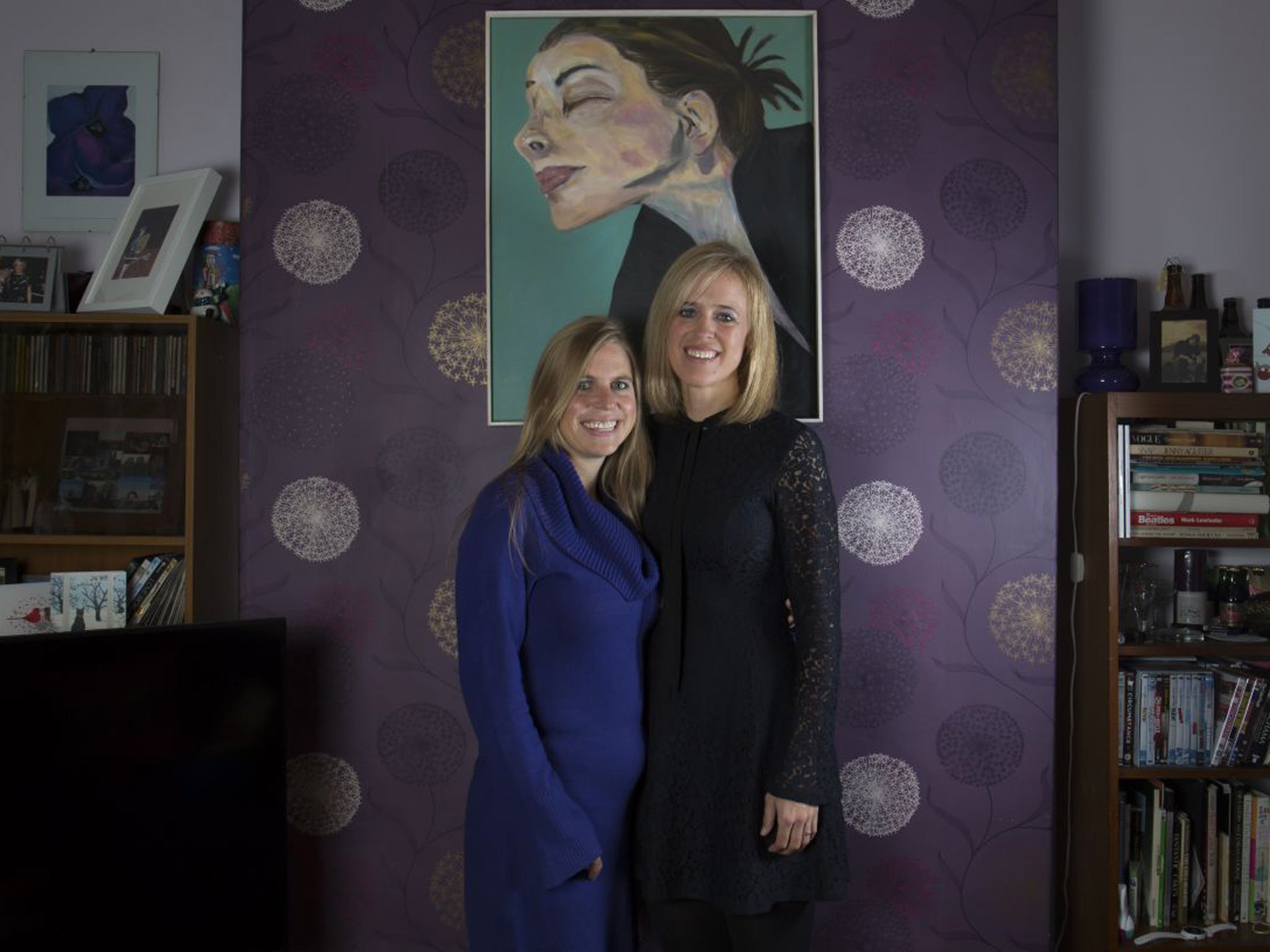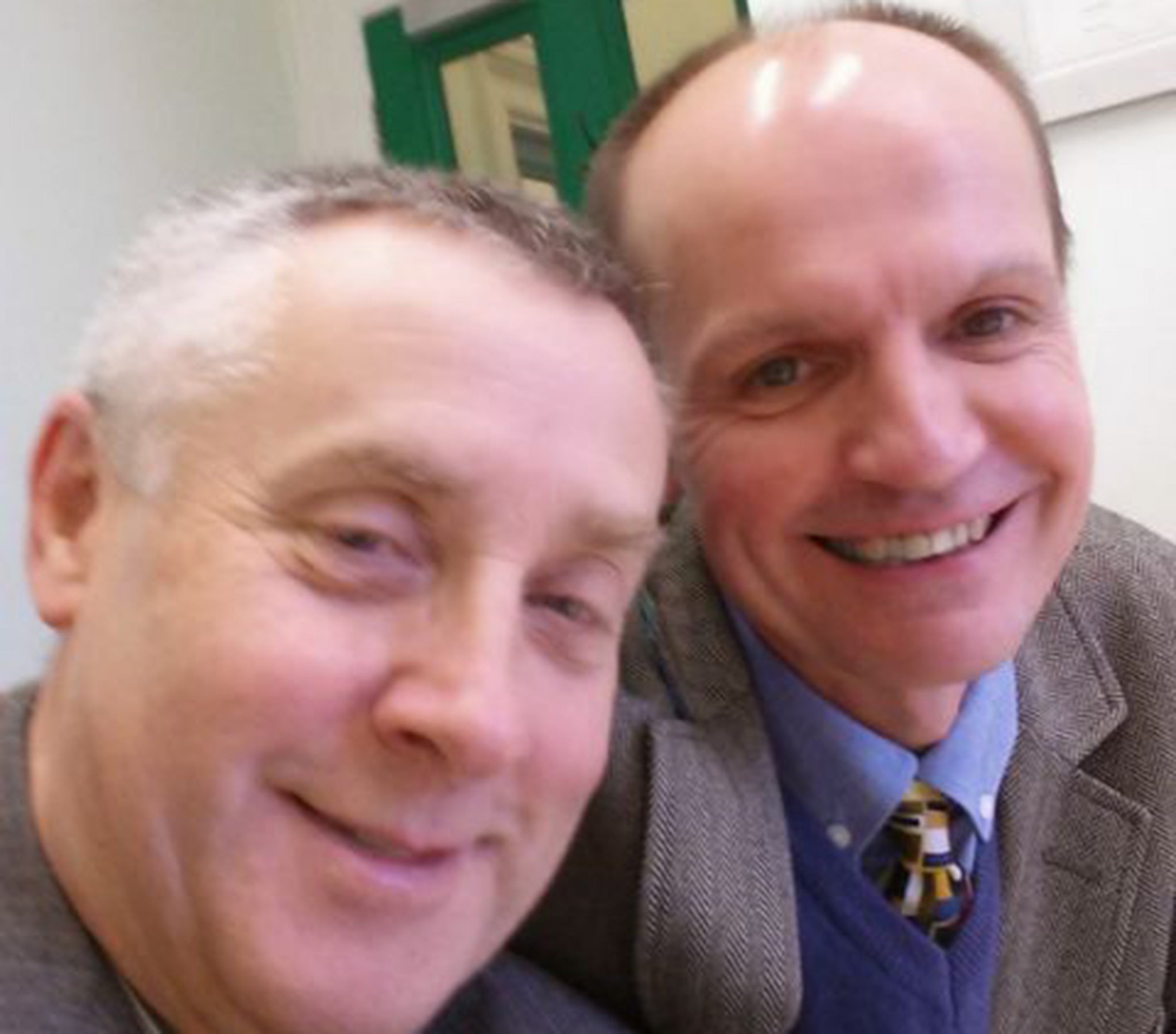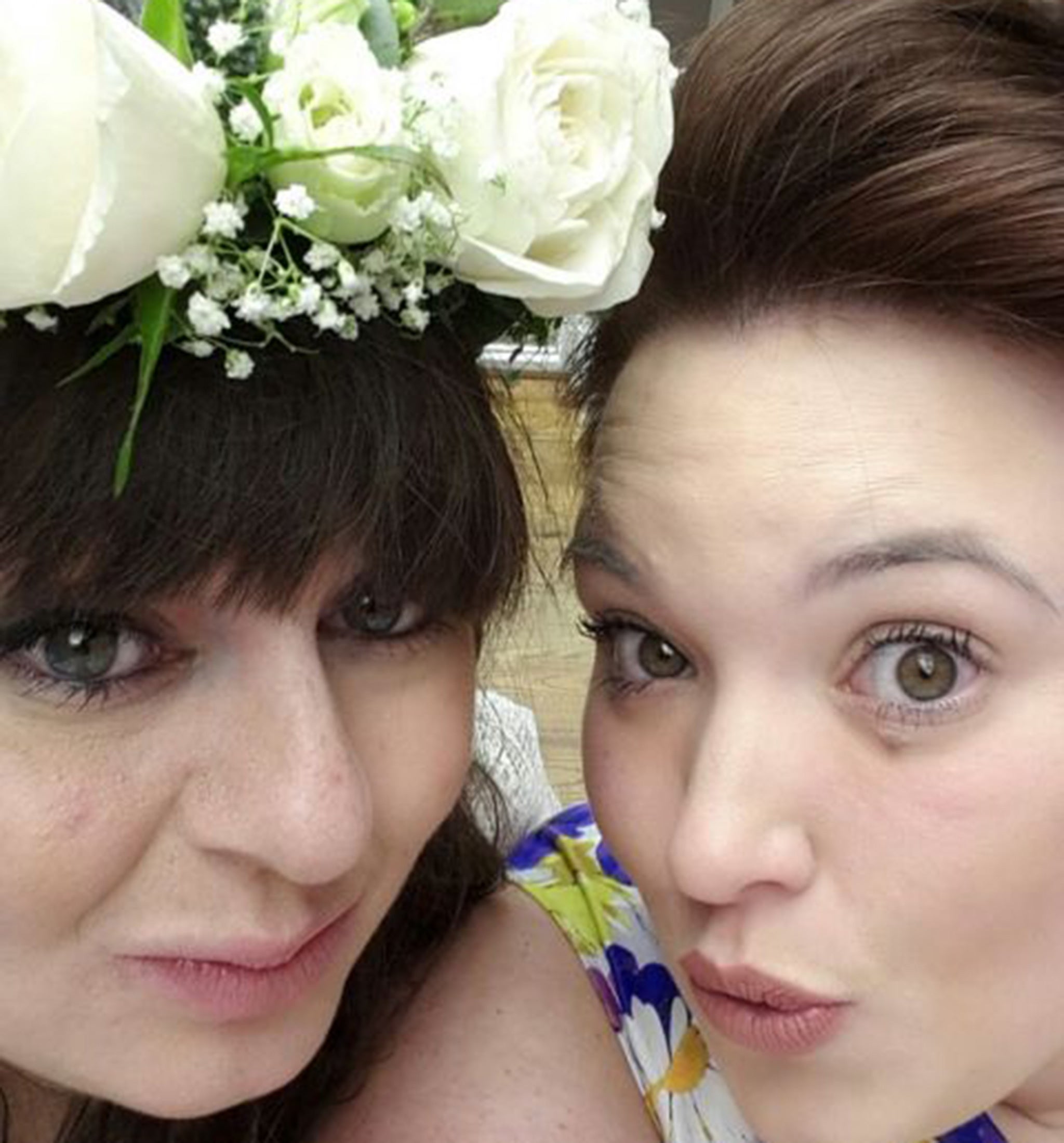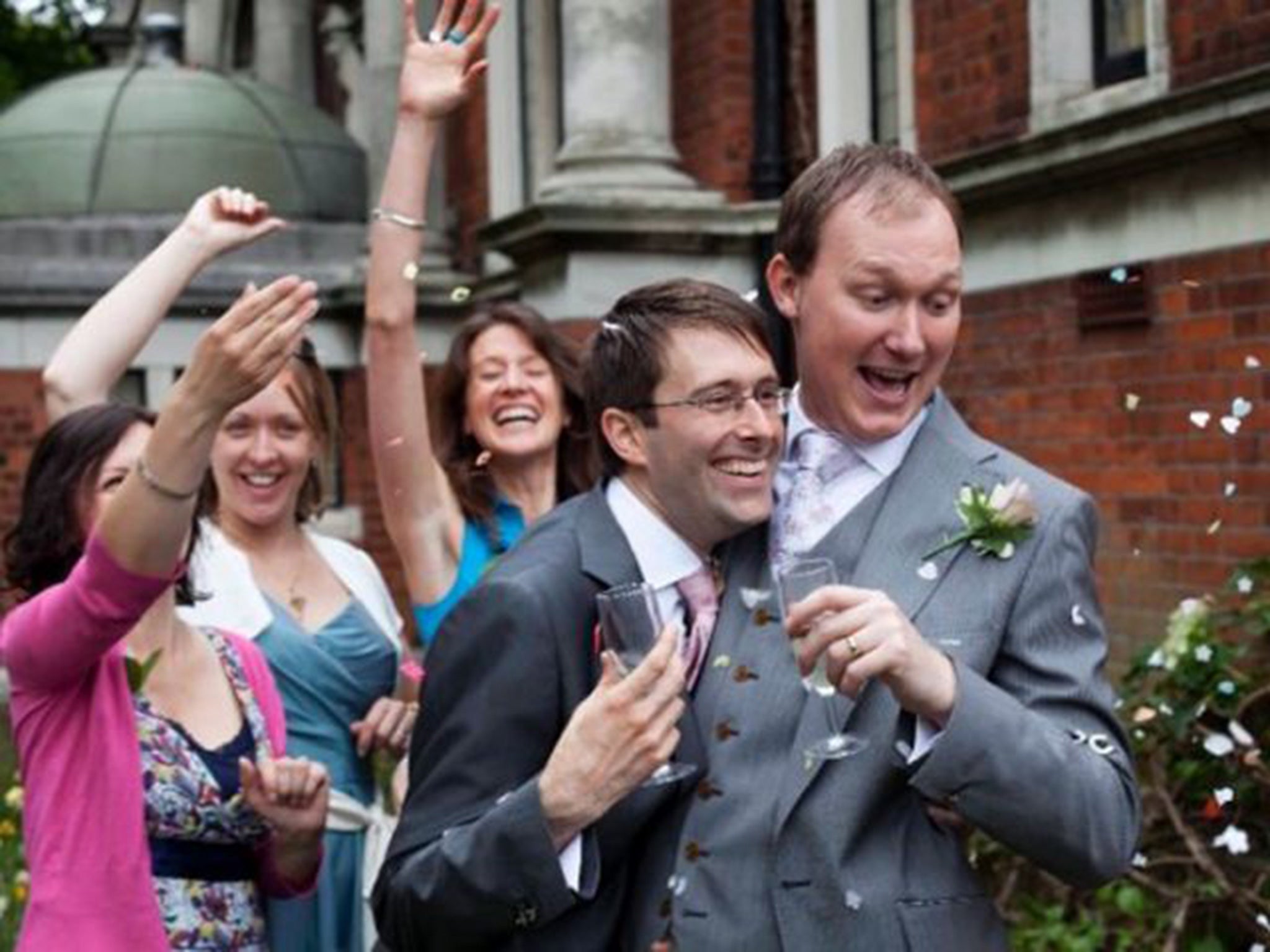Civil partnerships: Examining their impact 10 years after the first 'gay weddings'
Ten years after the first 'gay weddings', we look at their significance on the path to equality

Your support helps us to tell the story
From reproductive rights to climate change to Big Tech, The Independent is on the ground when the story is developing. Whether it's investigating the financials of Elon Musk's pro-Trump PAC or producing our latest documentary, 'The A Word', which shines a light on the American women fighting for reproductive rights, we know how important it is to parse out the facts from the messaging.
At such a critical moment in US history, we need reporters on the ground. Your donation allows us to keep sending journalists to speak to both sides of the story.
The Independent is trusted by Americans across the entire political spectrum. And unlike many other quality news outlets, we choose not to lock Americans out of our reporting and analysis with paywalls. We believe quality journalism should be available to everyone, paid for by those who can afford it.
Your support makes all the difference.They were labelled “gay weddings” at the time. In fact, same-sex couples had to wait another eight years to join together in marriage for real. But civil partnerships were an important step in the gay community’s fight for equality, in love and life, when the first ceremonies were held 10 years ago.
We spoke to a few of those to have formed civil partnerships since 19 December 2005, to find out how they affected their lives, whether they still value them just as much since the introduction of equal marriage.
It brought us a chance of survival
Siân Lambert is a women’s programme co-ordinator for the LGBT Foundation. She lives with her wife, Emily Cobb, a civil servant, in Salford, Greater Manchester.
“I met Emily when we were working at a ski resort in Aspen, Colorado. I had a temporary working visa, which meant we spent some time apart when I had to go back home between ski seasons. We really wanted to be together but I needed a visa and at the time there was no way of doing that as US law didn’t recognise same-sex couples.
“We’d been together a year- and-a-half when we got a civil partnership. We probably wouldn’t have moved so fast if it wasn’t for the fact we needed the legal [documents], but we were in love and it bought our relationship a chance of survival. Ten years on and it’s going pretty well – we converted our civil partnership into marriage last month. This gives us legal rights around the world and the option to move back to the US one day.
“The US law did change a couple of years ago and we would consider moving back there in the future. But for now we’ve built a life in the UK and Emily has dual citizenship. The UK gave us that option and we’re very grateful for that.
“When we got the partnership we just had each other and our parents at the ceremony – neither one of us really felt it was definitely time to make that big commitment so it wasn’t an extravagant party, just a few drinks with a small group of friends.
“For some people, civil partnerships and now marriage is a very symbolic thing, but you can’t overestimate the power it gives. There are heterosexual couples who want don’t want to get married necessarily but they would like to have a civil partnership because it gives them more legal rights. That was an opportunity missed.
“I do think that civil partnerships played a really important role in that a lot of people are more “out” at work and in their personal life. I know of a lot of people who, when they decided to get civil partnerships, it was the first time they’ve come out to colleagues, friends or even family.”
Marriage doesn’t make us equal

Rev Richard Kirker, 64, lives with his partner Steve Caldwell, 56, in Whitechapel, London. The couple met in 1988 and became civil partners in 2006.
“Steve and I had been together for a significant amount of time before we were able to have any formal or legal recognition, so we felt somewhat underwhelmed by the possibility of being recognised by the state because it dragged its feet for so many years. The time for us to have got married probably would have been around 1990, not 2014.
“The fact we couldn’t have it recognised from day one leaves a rather bitter taste and doesn’t endear us to feel that the state should have any role in our relationship. Civil partnerships still don’t make us equal in the eyes of the law and neither does marriage. There is unfinished business to be completed there.
“Our ceremony was entirely prosaic and wholly unglamorous; it was just recognition, offering us an element of security and reassurance. When one of us dies, the other will be a slightly stronger position to maintain their dignity and rights to what we have jointly built up over many years.
“LGBT rights have improved but not for everyone. I was sacked from working with the Church of England in 1978 because I wouldn’t agree to renounce my membership to all gay organisations or agree to remain silent on the subject.
“It’s insanity on the church’s behalf not to be at the forefront of campaigning for equal rights for gay couples – it goes against its principles of all men being created equally. Instead it wants to discriminate against people and we’re not allowed to be married in a church.
“What needs to happen here is what the Irish have done, which is removing all clauses in their legislation that give religious bodies exceptions. There is no justification for religious bodies not to treat everybody without exception as equal citizens.
“We’re extremely happy but the legal partnership has made next to no difference to us. I wouldn’t want people to think it was only possible for us to have a happy, fulfilled relationship with the formality of marriage either.”
Civil partnership works for us

Laura, 25 is a trainee solicitor. She lives in Leeds with her partner Sam, 28, who works on a homeless prevention team for Leeds City Council.
“I met Sam nearly five years ago through work. We were friends to begin with and it just progressed from there. I hadn’t thought about a civil partnership at all before that, but I think when you meet the right person you just know.
“We had our ceremony on 1 June this year. It was our choice to get the partnership rather than marriage simply because we’re not religious and we didn’t want that connotation. We just wanted to commit to each other so the term “marriage” didn’t really matter. For us it’s the same.”
“It’s always been an easy ride for us and I’m grateful. I do think that to make things properly equal, heterosexuals should be able to have civil partnerships as well. There’s still a lot of work to do in terms of LGBT rights but it’s coming on leaps and bounds.
“I don’t think we’d ever convert our civil partnership to marriage because this is what works for us. To be able to say we’re committed and want to be together forever is wonderful and I’m grateful to show people that we’re serious about our relationship.”
I’ve always called Danny ‘husband’

Myles Stinton, a 39-year-old teacher, and Danny Whitby, who is 40 and works in theatre, live in London.
Myles: “We’ve been together since 1999 so once the legislation came in we wanted to make sure we weren’t just jumping on the bandwagon. We waited to have our civil partnership on 23 May 2009 – the 10th anniversary of us being together and to all intents and purposes we called it our wedding. On the invitations it may have said civil partnership but the language between us was very much about a wedding. I’ve always called Danny my husband. If marriage had been available from the start that’s what we would have done, although neither of us are religious. For us it was about legal recognition as well as a chance to celebrate our relationship.
“We didn’t convert to marriage immediately because at first the only option was to dissolve the civil partnership, essentially divorce and remarry. I did think that there wasn’t much point because we didn’t want to undermine our special day, but a female couple we know said they had converted. Through talking to them we realised that actually, it’s important to do it on a political level.”
Danny: “I liked the legality of the civil partnership but for me it was more of an emotional thing. I couldn’t get through the ceremony without crying just because that commitment was so important to me. There’s something special about saying Myles is my husband and nobody questioning it.
“One thing I loved was that for many of our friends’ children, it was their very first wedding. I just think that’s amazing. They won’t have the same prejudices that we had growing up with.”
Join our commenting forum
Join thought-provoking conversations, follow other Independent readers and see their replies
Comments